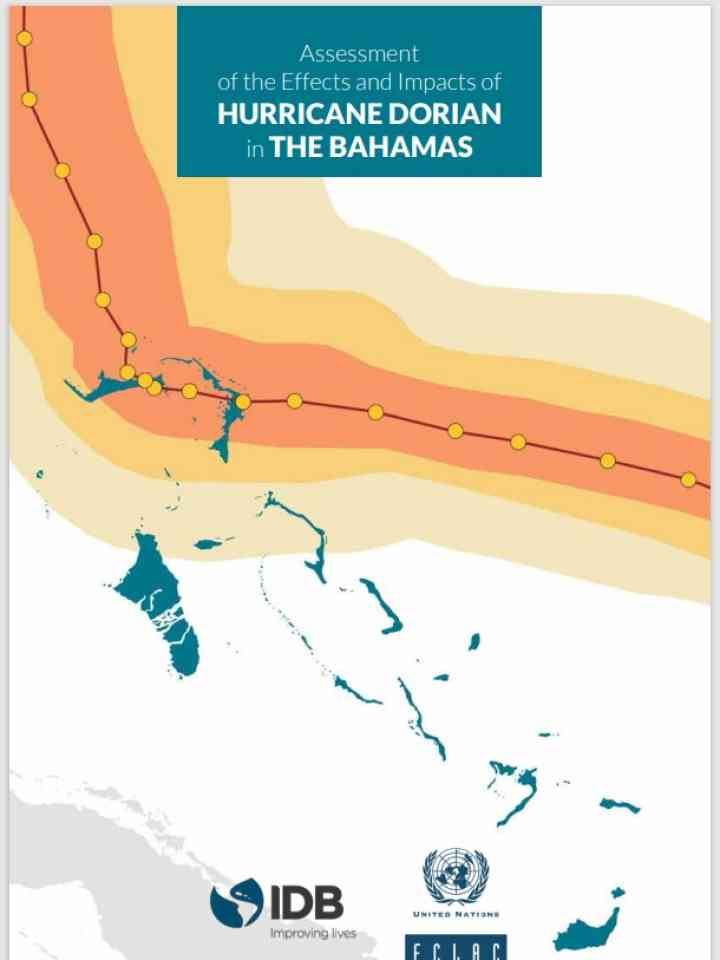Assessment of the Effects and Impacts of Hurricane Dorian in the Bahamas
This report assesses the effects and impacts of Hurricane Dorian on The Bahamas, focusing on the extensive damage and long-term recovery challenges faced by the country. Hurricane Dorian, one of the most intense hurricanes on record, caused significant destruction, particularly in Grand Bahama and Abaco. The total estimated damage reached $2.5 billion, with 91% of this being private sector losses. The report highlights the widespread damage to housing, infrastructure, and key economic sectors such as tourism, commerce, and fisheries. Additionally, the social sector, including health and education, suffered extensive losses, with over 10,000 students and 796 teachers affected. Environmental impacts were also significant, with damage to mangroves, coral reefs, and other ecosystems contributing to a decrease in ecosystem services.
The report details the financial implications of the disaster, estimating total losses at $717 million and additional costs, including debris removal, at $221 million. The analysis is based on the Disaster Assessment Methodology developed by the Economic Commission for Latin America and the Caribbean (ECLAC), which includes damage, losses, and additional costs across various sectors. Recommendations for resilient reconstruction are provided, emphasizing risk identification, risk reduction, preparedness, financial protection, and resilient recovery. The findings underscore the need for improved infrastructure and social policies to protect vulnerable populations and promote sustainable development in The Bahamas.
Explore further
